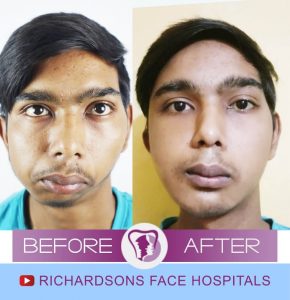5 Things You Need to Know About Open Joint TMJ Surgery in India
Temporomandibular disorder or dysfunction is a common problem caused by excessive strain on the jaw joints and muscles that control chewing, swallowing, and speech. Two joints and several jaw muscles make jaw movement possible, working together when chewing, speaking, and swallowing. These structures include muscles and ligaments, the jaw bone, the mandible (lower jaw) with two joints, and the temporomandibular joint. The TM joint, located on each side of the head, works together to make many different jaw movements.
Open surgery is suggested as the best option when compared to keyhole techniques to treat torn cartilage and damage to the joint’s surface. During the procedure, the surgeon fully exposes the jaw joint by an incision in front of the ear.
What is Open Joint TMJ Surgery?
A surgeon may suggest an open-joint TMJ surgery in India if the bony structures of the jaw joint are deteriorating, tumors in or around the TMJ need removal, or when the chips of the bone joint are severely scarred. TMJ open-joint surgery helps repair structural problems of the jaw joint and usually requires a hospital stay. Compared to arthroscopy, open-joint surgery includes opening an incision a few inches over the joint, requiring a longer healing time.
TMJ Open Joint Surgery Recovery:
Typically, TMJ open joint surgery recovery takes around 2–6 weeks. Patients are given clear post-operative directions, including dietary instructions and advice on water intake. The physician prescribes exercises and medication to reduce the pain and regain jaw motion. The surgeon may also suggest exercises to regain motion in the jaw and keep the swelling at bay. Cold compressions to the operated area help manage to swell.
TMJ Open Joint Surgery Risks:
One of the most common open-joint TMJ surgery risks is a limited or permanent loss in the range of motion. The other complications include injury of facial nerves resulting in a loss of sensation, hearing, or muscle movement. There is a rare possibility of post-operative infections around the surgical site and a chance of scarring and nerve injury. Another complication of the surgery affecting the parotid glands is Frey Syndrome, causing abnormal face sweating.
With an open-joint TMJ surgery, patients need to be cautious about any additional surgeries on the jaw joint since multiple surgeries may not be beneficial for relieving pain and restoring jaw function.
TMJ Open Joint Surgery Side Effects:
Some TMJ open joint surgery side effects might show up post-surgery. The operated area will stay painful for up to 6 months. Tenderness and stiffness of the jaw may lead to the restricted opening of the jaw. Keep the physician informed about any bleeding, bruising, and infection at the surgical site. Any allergic reactions to medications like constipation, hypertension, nausea, stomach pain, or blood clots should be immediately reported to the concerned doctor.
TMJ Open Joint Surgery Cost in India:
A TMJ open joint surgery cost in India varies widely from Rs 50,000/- to Rs 3,00,000 depending on the various charges towards preliminary consultations, the surgeon’s fee, the facility costs, materials, and follow-up treatment.
Open Joint TMJ Surgery in India is ideal for patients who continue to experience pain and restriction in jaw movement even after undergoing non-invasive procedures. To learn more about the surgery, including side effects and recovery time, please visit Richardsons Dental and Craniofacial Hospital.

